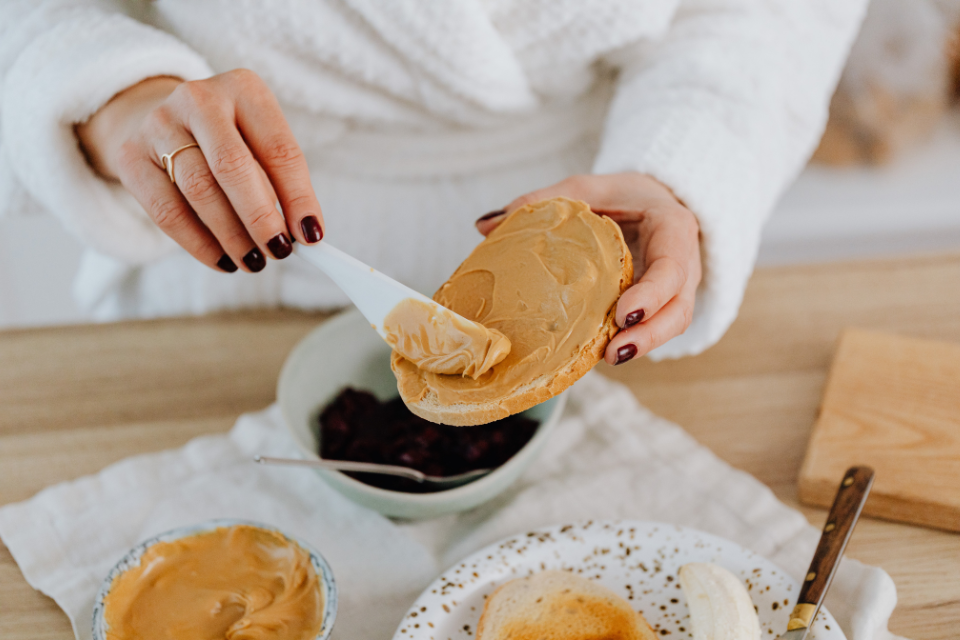What is pancreatitis?
Pancreatitis occurs when the pancreas, an organ located in the abdomen and behind the liver, becomes inflamed. The pancreas plays a key role in regulating blood sugar levels and produces important enzymes that allow the body to digest nutrients from the food we eat. There are 3 types of pancreatitis, which are determined by how long it lasts and if there is any permanent damage to the pancreas. Acute pancreatitis (single episode) is the inflammation of the pancreas for a short period of time (typically days to a week). Recurrent acute pancreatitis (RAP) consists of recurring episodes of inflammation. Chronic pancreatitis is when inflammation of the pancreas causes long-term scarring to the pancreas. This can cause ongoing digestive problems and may eventually progress to type 3c diabetes.
Learn more about chronic pancreatitis.
Nutritional Guidelines for Pancreatitis
Diet and nutrition play a key role in managing pancreatitis and pancreatitis-related pain. Experts recommend a well-balanced, low-fat, high-protein diet. Depending on personal nutritional needs, experts also recommend limiting your fat intake to 30 to 50 grams per day (in the U.S.). This can sometimes mean cutting out fats, sugars, and processed food from your diet. In addition, it is not recommended to consume alcohol, butter, or oils with pancreatitis. Some patients with pancreatitis may also have type 3c diabetes. It is recommended that those with type 3c diabetes avoid consuming processed sugars, which can disrupt blood sugar levels.
Learn more about nutrition for pancreatitis.
Is peanut butter good for pancreatitis?
Peanut butter is typically not recommended for those with pancreatitis due to its high-fat content. However, in the early or mild stages of chronic pancreatitis (CP), it may be possible to consume regular levels of fat, including peanut butter.
Peanut Butter and Pancreatic Enzymes
Peanut butter is made out of peanuts, and thus, like other types of nuts, has a very high fat content. A pancreatitis-friendly diet recommends sticking to a low-fat, high-protein diet. The pancreas is responsible for making many different enzymes, like protease, which breaks down proteins, and amylase, which breaks down carbohydrates. The pancreas is also responsible for making lipase, which breaks down fat from the food your body eats.
With pancreatitis, the pancreas becomes inflamed and has trouble producing these important enzymes. When the pancreas cannot produce lipase, eating high-fat foods, like peanut butter, may cause pain or flare-ups. This is because the pancreas cannot properly break down and digest the fats in it.
Those with severe chronic pancreatitis may experience long-term health issues because their bodies can’t produce enzymes and break down food, especially foods high in fats. This can include weight loss, bloating, and disruption in blood sugar levels. However, there is a way to obtain enzymes. Pancreatic Enzyme Replacement Therapy (PERT) are pills that contain pancreatic enzymes. They must be taken with food; if they are, they will give your body the enzymes it needs to digest nutrients.
People with chronic pancreatitis can still incorporate peanut butter and other fat sources into their diet; however, they may need to be careful with serving sizes and will need to make sure they take an adequate amount of PERTs. For those with severe CP, it is likely that high-fat foods (like peanut butter) will not be well tolerated and may need to be limited or avoided.
Learn more about Pancreatic Enzyme Replacement Therapy (PERT).
Do not consume peanut butter if you have an allergy to peanuts. We recommend speaking with your doctor or a nutritional expert regarding dietary changes you are concerned about.
Peanut Butter Alternatives for Pancreatitis
Peanut butter may not be an ideal choice for those with pancreatitis due to its high fat content. Fortunately, there are delicious alternatives that you can use that are gentler on your pancreas.
Always read nutritional labels before purchasing. These recommendations do not contain any affiliate links or paid promotions.
Reduced-Fat Peanut Butter
Many peanut butter brands offer a reduced-fat option and are a great alternative to regular peanut butter. For example, regular creamy Jiff peanut butter contains 8 grams of fat per tablespoon. In comparison, Jiff’s low-fat peanut butter contains as little as 6 grams of fat per tablespoon! While reduced-fat peanut butter is still made of nuts, which are high in fat, it can be a good alternative for those with pancreatitis depending on your tolerance to fat.
Reduced-fat peanut butter options include:
- Jiff’s reduced-fat peanut butter, which contains 6 grams of fat per tablespoon (may need to be used sparingly)
- Better N Peanut Butter Low Sodium Low Fat Peanut Spread, which contains 1 g of fat per tablespoon
Powdered Peanut Butter
Powdered peanut butter is an alternative to traditional peanut butter. Simply add water to the peanut butter powder and you will have a rich, creamy spread that contains an extra boost of protein. You can also easily add it to smoothies, cookies, or yogurt for a protein boost.
Powdered peanut butter options include:
- PB2 Powdered Peanut Butter, which contains 0.75 grams of fat and 3 grams of protein per tablespoon
- Great Value Powdered Peanut Butter, which contains 0.75 grams of fat and 3 grams of protein per tablespoon
- Powdered Almond Butter
Powdered almond butter is a good alternative for anyone allergic to peanuts. Almonds also contain fiber, protein, and vitamin E and are a great alternative to peanut butter for those with pancreatitis.
Powdered almond butter options include:
- Barney’s Powdered Almond Butter, which contains 0.5 grams of fat and 3 grams of protein per tablespoon
- PB2 Powdered Roasted Almond Butter, which contains 0.75 grams of fat and 2.5 grams of protein per tablespoon
Key Takeaways
- Peanut butter has a high fat content and is typically not recommended for those with pancreatitis.
- Pancreatitis can make it difficult for the body to produce an enzyme called lipase which is responsible for breaking down fat. Food that is high in fat is hard for the pancreas to digest.
- There are several pancreatitis-friendly alternatives to peanut butter, including reduced-fat peanut butter, powdered peanut butter, and powdered almond butter.
- Consider asking your doctor if a peanut butter alternative is right for you.

